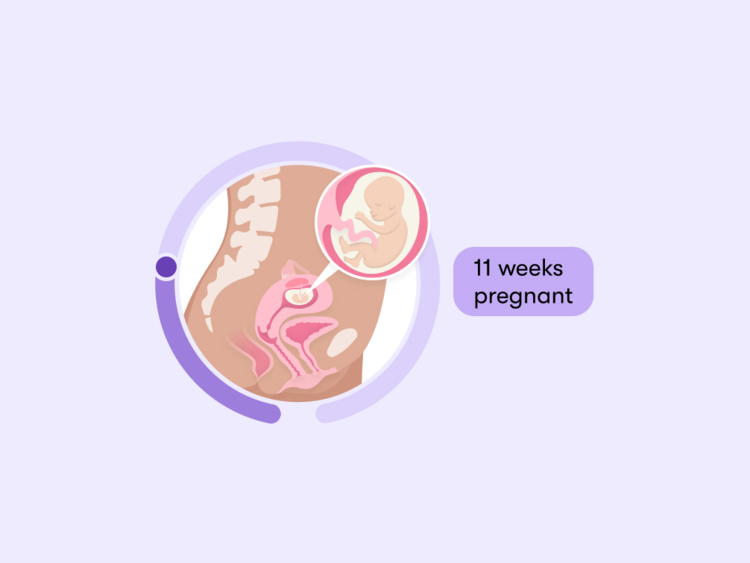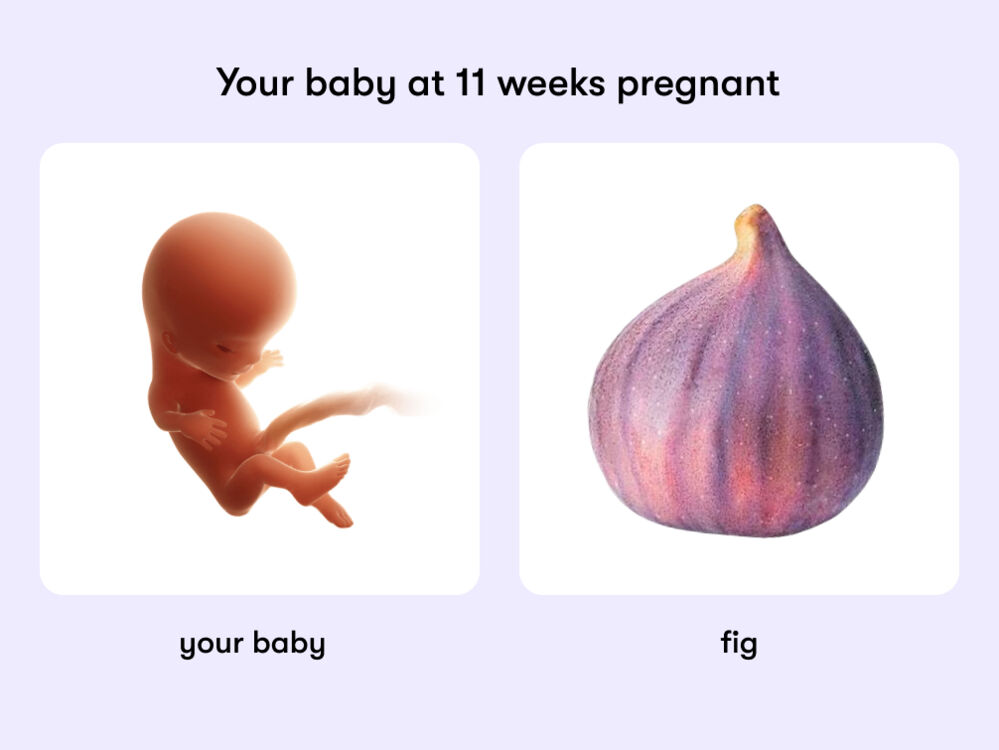Welcome to being 11 weeks pregnant! You’re well into your first trimester now — in fact, there are only a couple of weeks until you land in trimester number two. From your baby’s development to your pregnancy symptoms, here’s the lowdown on everything that’s happening at 11 weeks, with some advice from a Flo expert.
Your baby at 11 weeks pregnant
They’re forming their voice box
Your baby is starting to form their voice box — yes, really! They’ll even know how to cry in your uterus starting from about 28 weeks, but you won’t be able to hear them — plenty of time for that later, right?
Their eyelids are developing
As well as developing, their tiny eyelids are currently closed — but they’ll begin to open when you’re around 28 weeks pregnant.
How big is your baby at 11 weeks?
Length (crown to rump): Around 4.1 cm or 1.6 in.
Weight: Around 45 g or 1.6 oz.
Size: Equivalent to a fig
All measurements are approximate and vary within the normal range.



